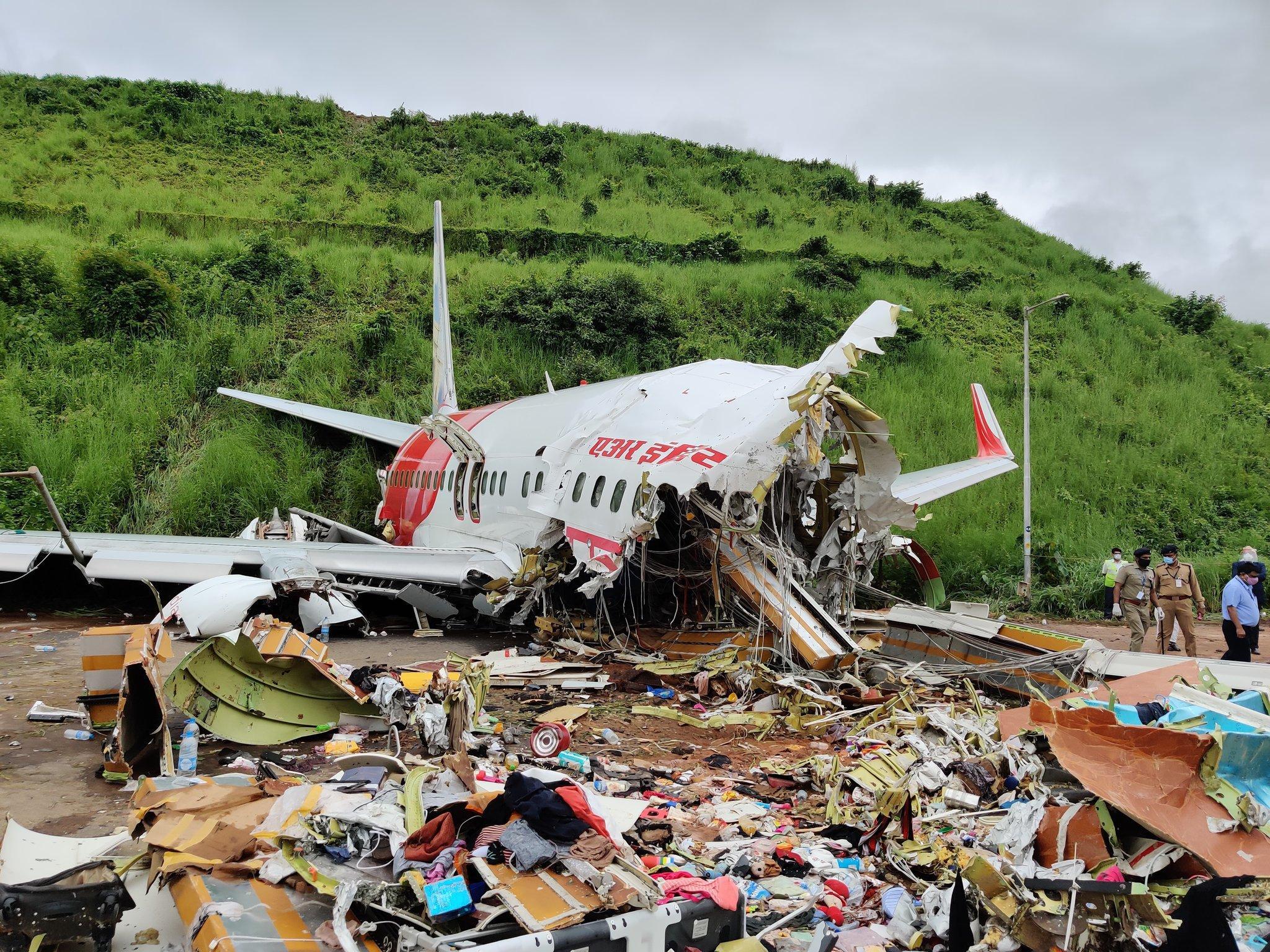
Credit: Hardeep Singh Puri / Twitter
Two fatal airliner crashes this year are a sober reminder that commercial air travel safety is not all about reducing virus transmission; the pre-pandemic industry definition of safety first remains true.
The May crash of Pakistan International Airlines (PIA) flight 8303, an Airbus A320, in Karachi, and the August runway excursion of an Air India Express flight IX1134, a Boeing 737, in Kozhikode, Kerala, had different origins and causes. But they share a common factor—the crashes, and loss of 116 lives, were totally avoidable.
That is unacceptable in 2020.
The India crash occurred on what is referred to as a “tabletop” airport, one of three such airports in India that feature runways atop flattened hills. Another, Mangalore International Airport, was the site of another Air India Express fatal accident, in May 2010, when a 737-800 ran off the runway end following continuation of an unstable approach.
There were lessons from the 2010 crash that could have prevented this year’s crash, including eliminating downward slopes beyond runway ends and installing Engineering Material Arresting Systems (EMAS), which were recommended by investigators of the Mangalore accident. The sad irony of the Kozhikode crash is that it was a pandemic repatriation flight from Dubai. The passengers were returning home in a world made dangerous by a virus, only to be endangered by their mode of transport.
The Karachi crash is even more shocking in its needlessness and for the discoveries that have emerged as part of the investigation. Inexplicably, PIA 8303’s pilots continued with an unstable approach and forgot to extend the landing gear before scraping the runway and going around. The aircraft then lost engine power and crashed in a residential area as it was circling. Worse, the investigation has indicated that 30% of Pakistan’s 860 commercial pilots may have falsified their licenses by getting others to take their written tests.
FAA has responded to that discovery by downgrading Pakistan’s International Aviation Safety Assessment (IASA) status from Category 1 to Category 2, meaning airlines from Pakistan are banned from flying into the US. Other regional aviation authorities, including Europe’s EASA, have taken similar action.
That’s a good start. IASA downgrades typically have the effect of focusing a country’s aviation regulators on urgently reassessing their oversight processes and addressing deficiencies.
The safety failures of Pakistan and India’s air transport systems will, as always, be better addressed by collaborative industry initiatives. That will be harder to do in a pandemic world with quarantines, border closures and virus mitigation measures.
But safety—whether it’s keeping aircraft clean or avoiding crashes—remains this industry’s credibility currency.



Ingen kommentarer:
Legg inn en kommentar
Merk: Bare medlemmer av denne bloggen kan legge inn en kommentar.